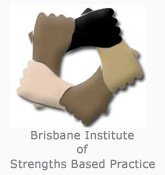|
ContributorsPractice of PsychotherapyThe Conversational ModelSelf PsychologyNotions of SelfBrief Interpersonal Therapies Dialectical Behaviour TherapyCognitive Behavioural TherapyAccept. & Commit. Therapy Attachment Child and AdolescentEMDRBody Oriented TherapiesAdvances in Neuroscience Art TherapyMindfulnessYoga and TherapyTestimonial TherapyEditors Review
|
Prestige and Bipolarity: An evolutionary perspective.
|
|
James Le Bas
|
Bipolar spectrum conditions arose during the Pleistocene epoch, during a time of repeated glaciation and interspecies competition for resources. Hominins are likely to have relied on communal problem solving and leadership was procured through gaining prestige, rather than by enforcing dominance.
Prestige competition meant that individuals needed to display narrative skills, affective engagement, energisation and social goal pursuit to avoid marginalisation, which may have been fatal. Alternatively, social withdrawal may have provided a protection from ostracism through a process of ?stealth?. Both of these behavioural repertoires represent prototypes of the modern day bipolar spectrum, which was selected and likely distorted through the accretion of evolutionary by-products.
This paper discusses the Measurement of Prestige Factors (MOPF) research. A bipolar spectrum based on social processes is described, elaborating the notion that mood disorders fall along clinical and genetic gradients. In addition to this structural account, a dynamic model will be presented, seeking to describe the functional relationships between prestige, self-esteem and the approach and withdrawal affective processes. It will be argued that the spectrum nodes and dynamic processes have arisen in response to prestige selection and other vectors. A case-control study of depressive, bipolar and control groups was undertaken.
Subjects were categorised into a seven node bipolar spectrum, based on syndrome and bipolar family history. Variables measured included community prestige, strategic prestige motivation (MSPM) and mood state. The bipolar I and sub threshold nodes scored more highly for MSPM than the unipolar and control groups, indicating an overrepresentation of the prestige leadership phenotype. Similarly, bipolar family history co-segregated with MSPM. Prestige was found to be increased in hypomania and reduced in depression. The dynamic model was supported by correlational analysis. The prestige model of spectrum bipolarity offers a new conceptualisation of affective disorders and has received preliminary support.
12th Biennial Australasian Schizophrenia Conference
13-14 May 2013 Melbourne, Australia.
Visit MAPrc at : http://www.maprc.org.au/
|
James Le Bas
 |
 more about this speaker more about this speaker |

|
James Le Bas
|
|
Dr James Le Bas is an Australian-based health professional. James is trained as a Psychiatrist, The University of Melbourne, Australia. Monash University, Melbourne, Australia. Peninsula Health, Melbourne, Australia. He has a practice located in Edithvale, Victoria, Australia.
|
Co-authors: Professor David Castle, A/Professor Richard Newton, Rachel Sore
Navigation
......................................
Home Page
......................................
......................................
|
Help
......................................
......................................
......................................
|
Audio Visual Archives
......................................
......................................
......................................
......................................
|
Useful
......................................
......................................
......................................
|
|
|
|
Subscribers
Login Here
|
|
Email
|
|
Subscribe
Now
|
|
BENEFIT from
UNLIMITED ACCESS to our
GROWING VIDEO LIBRARY
Subscribe Monthly
$19.95 - Unlimited Access
Subscribe 6 Months
$99.75 - Save 1 Month
Subscribe 1 Year
$149.95 - Save 3 Months
|
|
|













